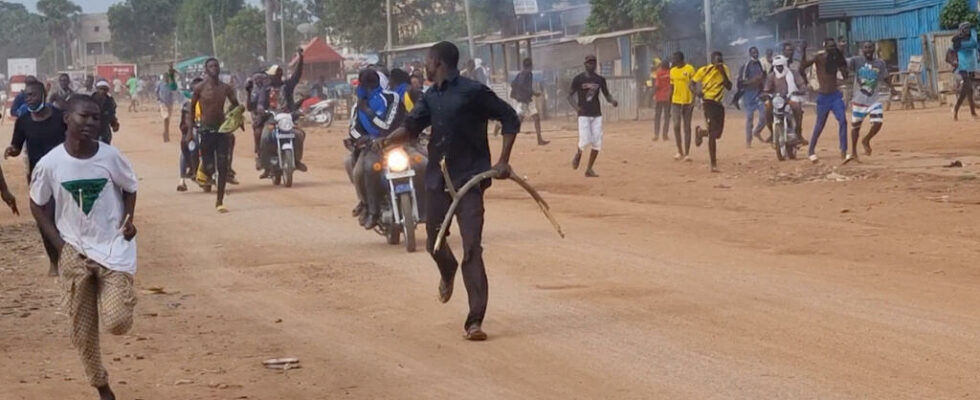Chadians are commemorating, this Sunday, October 20, the second anniversary of “Black Thursday”, the name they now give to the bloody repression of demonstrations organized two years ago to the day to demand the departure of the military in power. For all those who lost a loved one, the event remains a painful memory.
2 mins
With our correspondent in Ndjamena, Carol Valade
A little yellowed by time, the photo passes from hand to hand. Above, we can see Pascal, one of the 128 victims of the bloody repression which fell on Chadians who took to the streets, on Thursday, October 20, 2022, to protest against the two-year extension of the transition period , according to figures from the National Human Rights Commission.
When he receives the image, his younger brother, Casimir, looks away. That day, they were demonstrating side by side when the bullets started flying. “ He said nothing was going to happen, we were going out and coming back. Then the police threw tear gas canisters, and since there were a lot of people, they ended up taking out guns. “, he says.
Also read“Black Thursday” in Chad: the National Transitional Council votes for general amnesty
“ His death leaves a great void »
When he learns of Pascal’s death, Casimir runs to see him in the hospital. But ” When we arrived at the American hospital, we were shot at. I saw a young man get killed in front of me at point blank range », he continues. While Pascal leaves a widow and six orphans in the care of his brother, Casimir continues: “ When I see the children, I think of him and it makes me sad, it makes me very uncomfortable. His death leaves a great void. »
If the government, which considers these events as an insurrection, recognizes that the repression left 73 dead, more than 300 people were in fact killed during this “Black Thursday”according to the organizers of the mobilization.
Regarding the evolution of human rights, we can say that in Chad, the situation is even worse than two years ago.
Lewis Mudge, Central Africa director of Human Rights Watch
